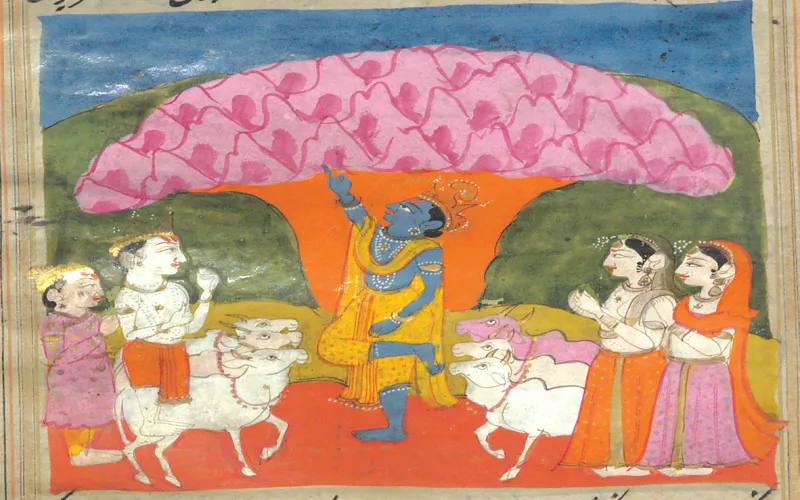The Bhandarkar Oriental Research Institute (BORI), Pune has a treasure of old Kashmiri manuscripts dating back to the 16th to 18th centuries. Among them are the Persian translations of the ‘Bhagavata Purana’ and the ‘Upanishads’, which Dara Shukoh, the elder brother of Mughal emperor Aurangzeb, had got done from the original Sanskrit. The Persian Bhagavata Purana also contains coloured sketches.
The BORI has preserved over 800 Kashmiri manuscripts, which are mostly Sanskrit. The collection comprises religious scriptures as well as secular literature. There are also some old Hindi manuscripts procured from the then Central Province in this collection.
“The subjects of these Kashmiri scriptures are the Vedas, the Upanishads, the Puranas, the ‘Mahabharata’ and epics such as ‘Rajatarangini’. These scriptures are written in the Devanagari and the Sharada scripts. Efforts are currently on to revive the latter, which was prevalent in Kashmir in the past,” said Amruta Natu, the assistant curator at the institute.
“A special mention needs to be made of a copy of the Rig Veda written in the Sharada script on the birch bark. We have a collection of copies of the Rig Veda. However, this is the only copy written in the Sharada script on the birch bark,” she said.

This collection of the Rig Veda has been recognised by the United Nations Educational, Scientific and Cultural Organization (Unesco) as the Memory of the World Heritage Register. Details about this are available on the Unesco website. The Kashmir version from this collection is from the 16th-17th century.
Another important scripture from the Kashmiri section is again written in the Sharada script on the birch bark from the 16th century. This scripture played an important part in writing a critical edition of Mahabharata published by the BORI. The institute also has a copy of Kalhana’s ‘Rajtarangini’.
The section also contains scriptures on Kashmiri Shaivism, which is a specialised branch of Shaivism.
Natu narrated an interesting story about how these valuable scriptures were procured from Kashmir. A German national and then education inspector Georg Buehler working during the British Raj collected them in 1875-76. In fact, over a half of all the scriptures preserved in the BORI were collected during the colonial period by many scholars. Buehler, himself a researcher, travelled across Kashmir and collected these scriptures. He also got done copies of some scriptures, the originals of which he could not obtain.
Buehler has written an anecdote of his travel in Kashmir. The value of these scriptures was not known to many people then. The birch bark is a sturdy material, which was then used as a part of the roof of a house to plug leakages. The entire Kashmiri section is the result of Buehler’s efforts. “In fact, the German researcher had got special permission from the then British authorities to visit Kashmir even though he was operating within the Bombay province. Hence, we do not have any scriptures arriving after that,” said Natu.
She said many scholars from across India and abroad visit BORI to study these Kashmiri manuscripts as per their area of specialisation even today. Around 250 visitors access the BORI library every year. Many of those also show a keen interest in the Kashmiri manuscripts. Most of the manuscripts have been digitized.






